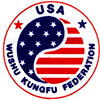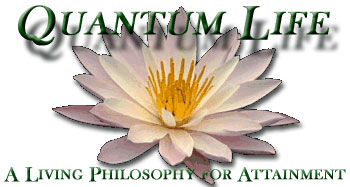Proud
Member
of USAWKF
of USAWKF
Why Chant the Daimoku
April 9, 2006
This is a very important question. To those who have not dedicated regularly in their daily lives the time to contemplate, study, and practice spiritual teachings, no amount of explanation will have value. Some things must be experienced to build understanding. I have included in this letter a writing of Nichiren's on this exact topic. But before I simply turn you over to his gosho, and there are many that deal with this question, I would like to offer a personal response.
As you suggest, there is much to be gained from proper breathing and meditation. All practices such as these have their foundation in ancient Indian and Chinese practices from Ayurvedics, yoga, qigong, and myriad Brahmanist, Hindu, Jainist and Buddhist traditions and teachings. There is even evidence of such practices by Mayan, Aztec and many indigenous cultures. I must offer to you that the title of the Lotus Sutra is not strictly a language in the conventional sense. The combination of the sounds and vibrations made by chanting the Sanskrit symbols, representing concepts rather than specific references, is something transcendent to the limitations or definitions of language. In a simplistic sense, all meditation is passive, and awaits epiphany (i.e. Chan or Zen). This is an important concept to remember. The Buddha's culminating teaching of the Lotus Sutra makes very clear to discard all previous teachings as merely provisional. The Buddha then taught the most expedient way to attain the higher states of consciousness innate within us. What he taught was that passive meditation was a provisional means to assist some to attain enlightenment, but that active meditation of the Lotus Flower Sutra was the most expedient means to enlightenment for all human beings throughout all time. So to create the energy flow of one's innate Buddha nature in this moment, in this lifetime, without fail, by breathing and chanting the daimoku Nam (u)-myoho-renge-kyo, all are guaranteed to enter Buddhahood.
This is not linguistics, it is methodology. Your statement however, that you seek "essence" "beyond" the "language", "core", and the "breath", is pure semantics. How do core and essence differ? I don't mean to pick, but this sounds allot like new age babble. Perhaps you agree. Buddhism, like science, has always been based on observable phenomena. And Buddhism is always ready to assimilate new insights. This makes it a living philosophy rather than a dogmatic idiom trapped in rhetoric and semantics.
In my own teachings of Quantum Life, I explore the astounding congruencies of Quantum Physics and Mechanics to Buddhist cosmology and thinking. One of the congruencies I find has direct correlation to the chanting of the daimoku. The ephemeral existence of particles as observable only as either particle or wave, yet exhibiting the behaviour of both has at its core mechanics the behaviour of vibration and frequency as properties inherent in both states. Although we "know" both states co-exist at the same time, we can only observe one at a time in any given moment. This is true of all sub-atomic "particles". Since sub-atomic particles are the building block of all phenomena, this also validates the Buddhist canon of impermanence, which states that all observable phenomena are transient and exist only through the construct of our minds. Our very existence is of this impermanent structure. Therefore, it makes perfect sense to me that creating that vibration within myself is an expedient means at perceiving the true nature of the universe. Further, it would also make sense that this is a particular vibration with particular frequency peculiar to this instantiation of this universe. I would cite as example the specific resonance, frequency and intensity of certain musical notes to shatter glass or eardrums, or travel through great distances in an ocean to communicate with an underwater mammal.
Here is the gosho on the subject for your perusal. I hope this helps. You can access all of Nichiren's writings online. I have a link to the library on the first page of my website at http://threefoldlotus.com.
The One Essential Phrase
First, for you to ask a question about the Lotus Sutra is a rare source of good fortune. In this age of the Latter Day of the Law, those who ask about the meaning of even one phrase or verse of the Lotus Sutra are much fewer than those who can hurl great Mount Sumeru to another land like a stone, or those who can kick the entire galaxy away like a ball. They are even fewer than those who can embrace and teach countless other sutras, thereby enabling the priests and laymen who listen to them to obtain the six mystic powers. Equally rare is a priest who can explain the meaning of the Lotus Sutra and clearly answer questions concerning it. The Hoto chapter in the fourth volume of the Lotus Sutra sets forth the important principle of six difficult and nine easy acts. Your asking a question about the Lotus Sutra is among the six difficult acts. This is a sure indication that if you embrace the Lotus Sutra, you will certainly attain Buddhahood. Since the Lotus Sutra defines our life as the Buddha's life, our mind as the Buddha's wisdom and our actions as the Buddha's behaviour, all who embrace and believe in even a single phrase or verse of this sutra will be endowed with these three properties. Nam-myoho-renge-kyo is only one phrase, but it contains the essence of the entire sutra. You asked whether one can attain Buddhahood only by chanting Nam-myoho-renge-kyo, and this is the most important question of all. It is the heart of the entire sutra and the substance of its eight volumes.
The spirit within one's body may appear in just his face, and the spirit within his face may appear in just his eyes. Included within the word Japan is all that is within the country's sixty-six provinces: all of the people and animals, the rice paddies and other fields, those of high and low status, the nobles and the commoners, the seven kinds of gems and all other treasures. Similarly, included within the title, Nam-myoho-renge-kyo, is the entire sutra consisting of all eight volumes, twenty-eight chapters and 69,384 characters without exception. Concerning this, Po Chu-i stated that the title is to the sutra as eyes are to the Buddha. In the eighth volume of his Hokke Mongu Ki, Miao-lo stated that T'ien-t'ai's Hokke Gengi explains only the title, but that the entire sutra is thereby included. By this he meant that, although the text was omitted, the entire sutra was contained in the title alone. Everything has its essential point, and the heart of the Lotus Sutra is its title, Nam-myoho-renge-kyo. Truly, if you chant this in the morning and evening, you are correctly reading the entire Lotus Sutra. Chanting daimoku twice is the same as reading the entire sutra twice, one hundred daimoku equal one hundred readings of the sutra, and a thousand daimoku, a thousand readings of the sutra. Thus if you ceaselessly chant daimoku, you will be continually reading the Lotus Sutra. The sixty volumes of the T'ien-t'ai doctrine present exactly the same interpretation. A law this easy to embrace and this easy to practice was taught for the sake of all mankind in this evil age of the Latter Day of the Law. A passage from the Lotus Sutra reads, "During the Latter Day of the Law, if one wishes to teach this sutra, he should employ the mild way of propagation." Another reads, "In the Latter Day when the Law is about to perish, a person who embraces, reads and recites this sutra must abandon feelings of envy and deceit." A third states, "In the Latter Day of the Law, one who embraces this sutra will be carrying out all forms of service to the Buddha." A fourth reads, "In the fifth five hundred years after my death, accomplish worldwide kosen-rufu and never allow its flow to cease." The intent of all these teachings is the admonition to embrace and believe in the Lotus Sutra in this Latter Day of the Law. The heretical priests in Japan, China and India have all failed to comprehend this obvious meaning. The Nembutsu, Shingon, Zen and Ritsu sects follow either the Hinayana or the provisional Mahayana teachings but have discarded the Lotus Sutra. They misunderstand Buddhism, but they do not realize their mistakes. Because they appear to be true priests, the people trust them without the slightest doubt. Therefore, without realizing it, both these priests and the people who follow them have become enemies of the Lotus Sutra and foes of Shakyamuni Buddha. From the viewpoint of the sutra, it is certain that not only will all their wishes remain unfulfilled, but their lives will be short and, after this life, they will be doomed to the hell of incessant suffering.
Even though one neither reads nor studies the sutra, chanting the title
alone is the source of tremendous good fortune. The sutra teaches that
women, evil men, and those in the realms of Animality and Hell--in fact,
all the people of the Ten Worlds--can attain Buddhahood. We can comprehend
this when we remember that fire can be produced by a stone taken from
the bottom of a river, and a candle can light up a place that has been
dark for billions of years. If even the most ordinary things of this world
are such wonders, then how much more wondrous is the power of the Mystic
Law. The lives of human beings are fettered by evil karma, earthly desires
and the inborn sufferings of life and death. But due to the three inherent
potentials of Buddha nature--innate Buddhahood, the wisdom to become aware
of it, and the action to manifest it--our lives can without doubt come
to reveal the Buddha's three properties. The Great Teacher Dengyo declared
that the power of the Lotus Sutra enables anyone to manifest Buddhahood.
He stated this because even the Dragon King's daughter was able to attain
Buddhahood through the power of the Lotus Sutra. Do not doubt this in
the least. Let your husband know that I will explain this in detail when
I see him.
Nichiren
The third day of the seventh month in the first year of Koan (1278).
BACKGROUND
This letter was written in response to a question posed by a friend of the reverend after she had received the essay on parental guidance. Her question is included below for reference.
Original message:
>>The practice of chanting the daimoku "Nam-myoho-renge-kyo"
is a direct path to one's highest innate and fundamental source.
In my humble opinion, I think this is random. This is a language I do
not directly understand and I do not "own" its essence. While
I have found other focal points for myself, I have never understood the
foreign language chanting. It could be Latin too. I prefer, instead to
find the essence beyond language, the core, and the breath.
I hope you don't think me disrespectful, but I just never "got"
the daimoku ... it was something I didn't feel I could discuss with you
when we were living together because you were so intense about it and
I was trying to get a grip; but now with a good bit of distance, I do
not feel like it is hurtful or any threat to either of us.
So what do you think? Why Nam-myoho-renge-kyo? Why not something in our
language or a personal essence?












